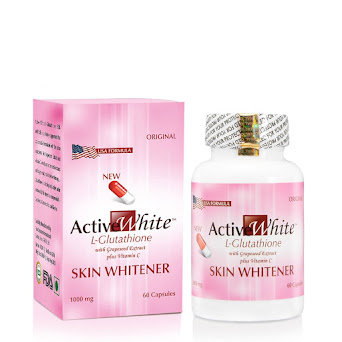Glutathione Skin Whitening Cream: Is It Safe and Effective?
Glutathione skin whitening cream has been gaining popularity in recent years as a potential solution to achieve a fairer complexion. However, it’s important to understand what glutathione is, how it works, and the potential risks associated with its use.

Glutathione is a natural antioxidant that is produced in the body to protect cells from damage and improve the immune system. It is found in high levels in the liver, but can also be found in other organs such as the lungs and kidneys. Glutathione is also available in supplement form and is often used for its purported skin whitening properties.
Glutathione works by inhibiting the production of melanin, the pigment that gives our skin its color. Melanin production is stimulated by exposure to UV radiation from the sun, and it’s the body’s natural defense mechanism against the harmful effects of the sun. However, excess melanin production can lead to uneven skin tone, dark spots, and hyperpigmentation.
When glutathione is applied topically to the skin or taken orally, it is believed to reduce melanin production, resulting in a lighter complexion. Some glutathione skin whitening creams also contain other skin lightening ingredients, such as kojic acid or vitamin C, to further enhance the whitening effect.
While glutathione skin whitening cream may seem like a quick and easy solution to achieve fairer skin, there are potential risks and drawbacks to its use. Firstly, the effectiveness of glutathione as a skin whitening agent is still not fully understood, and results can vary greatly between individuals. Additionally, long-term use of glutathione supplements has been associated with potential health risks, such as liver damage and kidney dysfunction.
Furthermore, there is a growing concern about the safety and ethics of skin whitening products. Skin whitening is often promoted as a way to achieve a more desirable and socially acceptable appearance, which can perpetuate harmful beauty standards and reinforce colorism. Additionally, the use of skin whitening products has been linked to the perpetuation of discrimination and racism towards darker-skinned individuals.
In conclusion, while glutathione skin whitening cream may offer a temporary solution to achieve a lighter complexion, it’s important to weigh the potential risks and drawbacks before deciding to use it. It’s also important to consider the societal implications of skin whitening and strive towards accepting and celebrating diverse skin tones. Ultimately, true beauty comes from embracing and loving our natural skin, regardless of its color.

Glutathione is a natural antioxidant that is produced in the body to protect cells from damage and improve the immune system. It is found in high levels in the liver, but can also be found in other organs such as the lungs and kidneys. Glutathione is also available in supplement form and is often used for its purported skin whitening properties.
Glutathione works by inhibiting the production of melanin, the pigment that gives our skin its color. Melanin production is stimulated by exposure to UV radiation from the sun, and it’s the body’s natural defense mechanism against the harmful effects of the sun. However, excess melanin production can lead to uneven skin tone, dark spots, and hyperpigmentation.
When glutathione is applied topically to the skin or taken orally, it is believed to reduce melanin production, resulting in a lighter complexion. Some glutathione skin whitening creams also contain other skin lightening ingredients, such as kojic acid or vitamin C, to further enhance the whitening effect.
While glutathione skin whitening cream may seem like a quick and easy solution to achieve fairer skin, there are potential risks and drawbacks to its use. Firstly, the effectiveness of glutathione as a skin whitening agent is still not fully understood, and results can vary greatly between individuals. Additionally, long-term use of glutathione supplements has been associated with potential health risks, such as liver damage and kidney dysfunction.
Furthermore, there is a growing concern about the safety and ethics of skin whitening products. Skin whitening is often promoted as a way to achieve a more desirable and socially acceptable appearance, which can perpetuate harmful beauty standards and reinforce colorism. Additionally, the use of skin whitening products has been linked to the perpetuation of discrimination and racism towards darker-skinned individuals.
In conclusion, while glutathione skin whitening cream may offer a temporary solution to achieve a lighter complexion, it’s important to weigh the potential risks and drawbacks before deciding to use it. It’s also important to consider the societal implications of skin whitening and strive towards accepting and celebrating diverse skin tones. Ultimately, true beauty comes from embracing and loving our natural skin, regardless of its color.



Comments
Post a Comment